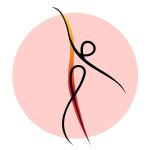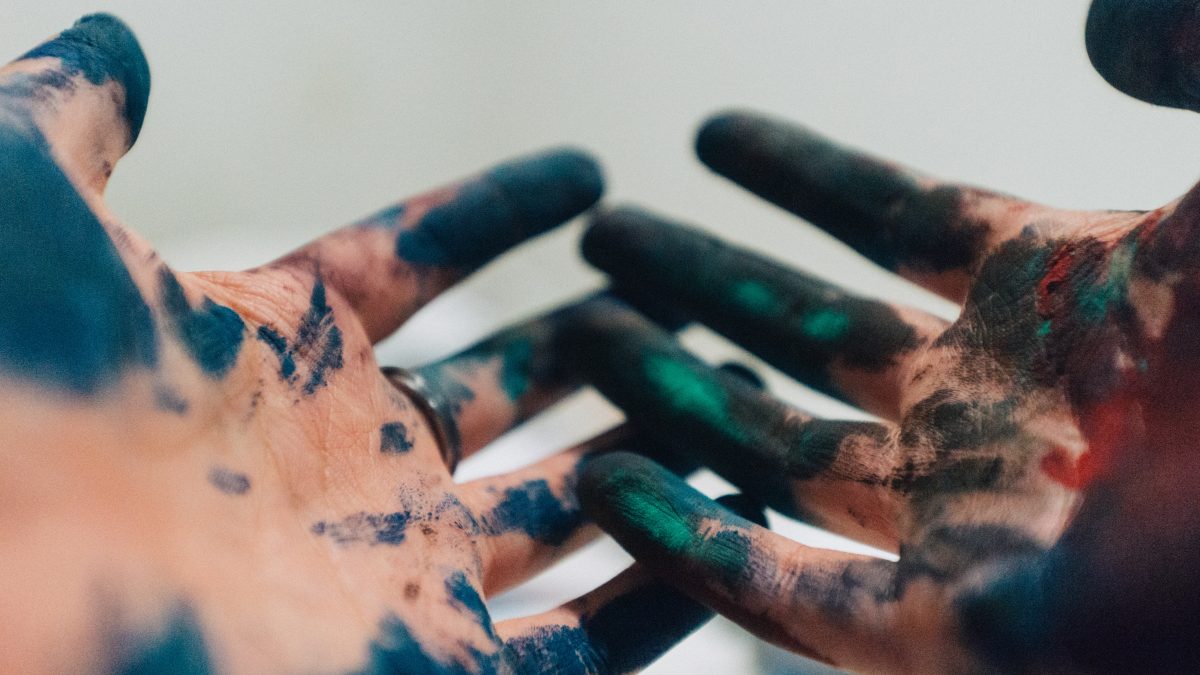Meridian Archetypes Part 5: The Artist
Intense and emotion-driven, the small intestine meridian epitomizes the artist archetype. Constantly overwhelmed by the beauty in the world around them, Artists must create or miss out on their true potential. While we as a society have clear ideas of what defines an artist, I ask that you keep an open mind when looking for this pattern in yourself. The innate creativity that defines the artist is found in the most unexpected places.
To find the small intestine meridian within yourself, you have to look at your emotions.
Do you feel intensely?
Do you make decisions based on your emotional reaction?
Does your passion drive you to create?
The small intestine meridian is concerned with discernment. In Traditional Chinese Medicine, the small intestine is commonly known as the Separator of the Pure from the Unpure. The organ itself processes food and liquids, identifying what is useful and distributing nutrients throughout the body. Likewise, the meridian identifies and distributes emotions. The small intestine’s role is to take emotions and manifest them through creative pursuits.
Issues with the small intestine manifest in lack of joy, self-deprecation, pessimism, and depression. The physical manifestations of an imbalance would appear in a rotator cuff injury or other injuries to the shoulder.
By strengthening and stretching the small intestine meridian, you gain access to your creativity, joy, and inner artist. You also may learn some tricks to combat shoulder injuries and improve movement in your rotator cuff. To understand the small intestine meridian’s place in our series, we will examine it’s Western medicine functions, archetypes, common imbalances, and exercises to help restore the healthy flow of our meridian.
The Small Intestine in Western Medicine
The small intestine meridian is concerned with discernment and is commonly known as the Separator of the Pure from the Unpure. The organ itself receives food and liquids from the stomach and identifies what is useful. It then sends essential fluids to the spleen for transformation and distribution to all parts of the body. What remains is sent to the large intestine for disposal.
Ninety percent of digestion occurs in the small intestine. The acid in your small intestine is so potent that the epithelium or single layer of protective cells surrounding the small intestine is completely replaced in three to four days. The epithelium creates a protective barrier between the food we are digesting and the rest of the body. If the epithelium is compromised, also known as Leaky Gut Syndrome, the rest of the body will be at risk. Leaky Gut can contribute to obesity, depression, chronic fatigue, and other inflammatory diseases.
The gut has the added responsibility of protecting the body from harmful bacteria often found in our food. Too much bacteria in the small intestine can prevent the absorption of nutrients leading to gas, bloating, diarrhea, or constipation.
Emotional Digestion: Caring For The Body To Heal The Spirit
The Small Intestine meridian is a receptacle for emotions and consequently transforms raw emotion into creative expression. We know that extreme emotions can negatively affect our digestion, causing poor absorption and slow movement through the digestive tract. This is why we refuse food in the face of grief or lose our appetite when our fight-or-flight response is triggered. Unfortunately, poor digestion can also aggravate our stress response. They feed off of each other in a symbiotic relationship. Therefore, to have a healthy digestive system, we need to take care of both our minds and our bodies.
We need to eat a well-balanced diet and regulate our emotional health to have a truly healthy digestive system. One easy way to assist the small intestine is to eat lots of fiber. Fiber is easy to incorporate into your diet. Most whole grains, beans, fruits, and vegetables contain fiber. It helps food move through the digestive system more quickly and leads to smoother bowel movements.
The small intestine is a crucial part of a healthy immune system. Our gut contains 100 trillion live microorganisms that support normal gastrointestinal functions, protect the body from infection, regulate our metabolism. If the small intestine is not working properly, our bodies are not able to properly fight off and dispose of harmful substances. In addition to eating lots of fiber, the human body needs a healthy, balanced diet to function optimally.

Exercises
Beginner
Can-Opener (Hands pressed together, elbows at shoulder height, open and close elbows)
Intermediate
Figure Eight Arms
Advanced
Wombat Pose
The Artist & Inner Beauty

Archetypes: Artist, Sculptor, Artisan, Craftsperson, Photographer, Videographer, Designer
The artist archetype allows us to see past the facts to the beauty that lies within. The phrase “putting a light under the bushel” aptly describes the strength of the small intestine meridian. The small intestine sees everything through an emotional lens. It is the executor of the heart meridian’s mission statement to bring love, peace, and unity to the world. The small intestine does this by being humble and surrendering themselves for the longevity of all. At the same time, they balance the physical and spiritual worlds. When out of balance, they can be overly serious and rigid or too light-hearted and laugh at inappropriate times.
Because the artist is such an easily recognized archetype, you may think that if you do not paint, sculpt, draw, or sew, that you and the artist have nothing in common. The act of producing art is only part of the artist archetype. For some, the artist will manifest in the way they dress or the way they decorate their home. It can be seen in the styling of a social media page or the way a scientist conducts an experiment. Art is simply the physical manifestation of the beauty we see in the world. Whether the art is represented by paint on a canvas or a hypothesis clearly stated, the manifestation of beauty is always the work of the artist archetype.
The artist has a bad reputation in American culture. While innovation and creativity are lauded as essential business skills, an “artist” is often attributed to non-lucrative careers in the liberal arts. But even the most cut and dry jobs need to channel the artist every once in a while. The artist’s ability to process through emotion allows them to connect better to consumers than a business person with a PowerPoint. Human creativity is what has allowed us to survive more lethal predators and cataclysmic environmental events. We adapt or get left behind.
Subtle Body Changes in the Small Intestine Meridian
In Traditional Chinese Medicine, the small intestine channels the energy of the fire element. It burns through the body separating the pure from the impure. This applies as much to the physical separation of nutrients as it does the emotion, thought, and spirit. The yang chi of the small intestine purges the moisture from the food it processes. Excess heat, or “yang chi,” can lead to constipation while excess dampness can lead to diarrhea.
In the subtle body, small intestine energy filters the person’s perception leaving behind clarity and truth. The artist archetype is the filter of culture. They perceive moments of change, focus on subjects that will move the heart, and ensnare the mind. Like the physical body, the subtle body suffers from an excess or deficit of chi. An excess can lead to nitpicking and a tendency to be overly judgemental. This artist gets stuck in their own head and remains convinced that their art is genius while their audience remains confused. A deficit can leave the artist without the power of discernment. Their art would be emotionless and disconnected.
Virtue Signaling: An Emotional Imbalance

We have seen that the small intestine meridian is responsible for separating the pure from the impure in our bodies and our minds. Since the small intestine is a primarily emotion-driven meridian, it stands to reason that it also separates the pure from impure feelings. When our small intestine is out of balance, we find ourselves firmly rooted in the moral high ground. We think, no one understands what is right better than I do. We may even feel compelled to correct others if we think what they are doing is wrong.
Morality is complicated. Is it better to lose one life to save ten others? Do we sacrifice ten criminals to save an innocent child? Where do we draw the line? Part of being human is that we all make mistakes every once in a while. Even the most righteous and seemingly upright citizens have secrets they wouldn’t want to be made public.
So why do some of us engage in virtue signaling?
We have all experienced virtue signaling at one point or another. The most recent example is wearing a mask when you are not sick to protect the vulnerable population. Other examples would be placing a political sign (or any sign) in your front yard, shaming your friends to keep them from going home with that random hot guy at the bar, or driving a hybrid (just kidding). We are not here to say whether wearing a mask, going home alone from the bar, or driving an environmentally friendly car is right. We are more interested in looking at the impulse that drives people to tell others what they should be doing.
When you explain a moral issue to a stranger or even a close friend, you are basically saying that you know better than them. But since morality is by definition a grey area, what makes you so sure you are right? Virtue signaling falls into the realm of the small intestine meridian. If you feel like you always know what is right better than anyone else, you could have an imbalance in your small intestine.
Looking Forward…
The small intestine is only one of two fire element meridians. Its balancing type is the heart. The heart meridian deals with issues of love and grief. Our next article in the Meridian Archetype series will look at chest openers, the good politician archetype, and how to heal your Heart meridian using resistance exercises.
Want to Work with Infinity?
Massachusetts locals can schedule an appointment for our Natick, MA office!
Infinity is also in the process of creating virtual offerings for Infinity. If you’re interested in learning more, sign up for our newsletter for announcements and a first look at what’s new!
Emma Matthies
Related posts
2 Comments
Leave a Reply Cancel reply
Categories
- Flexibility & Strength (13)
- Healing for Meridians (10)
- Holistic Lifestyle (5)
- Lymphatic Drainage (7)
- Massage (4)
- Meridian Archetypes (19)
- Spiritual (1)
- Traditional Chinese Medicine (12)




[…] Read more here. […]
[…] Read more here. […]